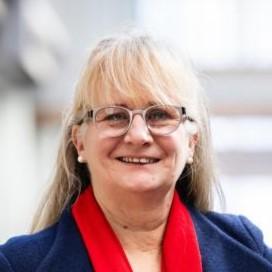
With Papua New Guinea (PNG) embarking on universal health coverage, improving the training for its key health workforce, particularly nurses and community health workers (CHWs), is critical.
The existing curricula for nurses and CHWs was developed in the late 1990s and finalised in 2002, and fails to align with the current national context, national standards and the new National Health Plan 2021-2030.
PNG’s National Department of Health (NDoH) has decided to update both curricula to ensure it meets the primary health care focus, Sustainable Development Goals, Universal Health Coverage and the National Health Plan 2021-2030.
The WHO Collaborating Centre for Nursing, Midwifery and Health Development at UTS (WHO CC UTS) has been contracted by World Health Organization, Papua New Guinea to coordinate the review and development of PNG’s National Curricula for Diploma of General Nursing and Certificate for Community Health Worker.
Surveying current and recent nursing and CHW students and supervisors on the current curricula
A key part of the process to develop new curricula has been to conduct a Baseline Survey to gather data on the effectiveness of the current curriculum, as well as highlight gaps in the skills and knowledge of current nursing and CHW students, recent graduates and their supervisors. This survey was carried out by NDOH researchers over October 2021 – February 2022 over 8 provinces, with around 500 responses.
Social Impact Grant builds capacity for NDOH researchers
In order to support the success of the survey and the overall project, four members of the NDOH’s National Curriculum Steering Committee who worked on the baseline survey – Ms. Julie Dopsie, Ms. Mary Kililo, Dr. Nina Joseph and Dr. Russel Kitau – attended capacity building and upskilling workshops and professional developing and networking opportunities in Sydney in November 2021, with the support of a UTS Social Impact Grant, to further their learning on measuring, evaluating and demonstrating impact.
Attendees participated in a Social Impact Monitoring and Evaluation workshop at UTS facilitated by Social Impact Research and Evaluation Specialist Dr Katie Blair. This workshop aimed to build the capacity of the NDOH researchers to support the project independently, ensuring it is effective and sustainable. In the workshop, participants were able to develop and refine an existing theory of change for the curricula program, enabling it to be communicated clearly and effectively to key program stakeholders. They were also able to workshop how best to evaluate and learn from the successes and challenges of the NDOH Baseline Survey to apply to future projects and programs, and share these learnings with colleagues at home. It also instilled confidence for them to undertake their own evaluations and develop effective program strategies independently.
One component of the workshop was how we monitor the whole program. The workshop gave us an opportunity to discuss issues that affect the progress of the program. It was very helpful to be together at UTS where we could work on these issues together as a team.”
- NDOH workshop participant
The NDOH researchers later attended a workshop by the NSW Government’s Health Education and Training Institute (HETI) which explored how HETI strategically partners with NSW Health to support health education initiatives in the state, how they develop their strategies to align with their partner’s plans and projects while taking careful consideration of the relationships between different stakeholders, and their monitoring and evaluation processes.
Attendees were able to reflect on how this work will assist them as they engage in national strategic planning for Continuing Professional Development and Human Resources education and development. The knowledge shared by HETI will undoubtedly prove useful for the team as they navigate these relationships to facilitate effective strategic partnerships and improve health workforce education in their country.
Workshop activities have helped “to get us into a position where we can direct the research ourselves.
Greatly appreciate and acknowledge the support of WHO CC UTS and the Social Impact Grant. We need more staff to be upskilled so that they can better support our national research, and this was a great way to start.- NDOH participant
Finally, the NDOH contingent attended the reception of WHO CC UTS as elected Secretariat of the Global Network of WHO Collaborating Centres in Nursing and Midwifery 2022-2026. Representatives from 42 countries attended in-person and online alongside key international institutions and industry partners, whom our colleagues have the opportunity to meet: WHO, AHPRA, the Australian Nursing and Midwifery Accreditation Council (ANMAC), the Australian Nursing Council (ANC), the Australian Nursing and Midwifery Federation (ANMF), ACT Health and the Australian Government Department of Health.
Impact
The workshops have provided the NDOH contingent with upskilling, capacity building and professional development opportunities that will support them in implementing complex strategic planning, monitoring and evaluation on this and future large-scale national projects in PNG, both within and outside the NDOH.
What’s next
The monitoring and evaluation processes that were applied to the Baseline Survey will be fed into the Faculty Development and Educators Needs Assessment survey, due to be conducted in 2023, in collaboration with all nursing and CHW institutes involved in the Strengthening Health Workforce Education in PNG program. Together these surveys will provide foundational evidence and knowledge to build capacity programs for educators and faculty to ultimately strengthen the health workforce in PNG.
The problem
With Papua New Guinea embarking on universal health coverage, improving the training for its key health workforce, particularly nurses and community health workers (CHWs), is critical. However, the existing curricula for nurses and CHWs was developed in the late 1990s and finalised in 2002, and fails to align with the current national context, national standards and the new National Health Plan 2021-2030.
The response
WHO CC UTS has been contracted by WHO PNG to coordinate the review and development of PNG’s National Curricula for Diploma of General Nursing and Certificate for Community Health Worker.
A key part of this process has been to conduct a Baseline Survey to gather data on the effectiveness of the current curriculum, as well as highlight gaps in the skills and knowledge of current nursing and CHW students, recent graduates and their supervisors.
What helped accomplish this?
In order to support the success of the survey and the overall project, four members of the NDOH’s National Curriculum Steering Committee who worked on the baseline survey attended capacity building and upskilling workshops and professional developing and networking opportunities in Sydney in November 2021, with the support of a UTS Social Impact Grant, to further their learning on measuring, evaluating and demonstrating impact.
What has changed as a result?
The workshops have provided the NDOH contingent with upskilling, capacity building and professional development opportunities that will support them in their implementing complex strategic planning, monitoring and evaluation on this as well as future large scale national projects in PNG, both within and outside the NDOH.
Download full case study
Team members
-
Director, WHO Collaborating Centre
-
 Tanusva TishaSenior Project Officer, WHO CC UTS
Tanusva TishaSenior Project Officer, WHO CC UTS -
Zachary Moore-BoyleUTS student


